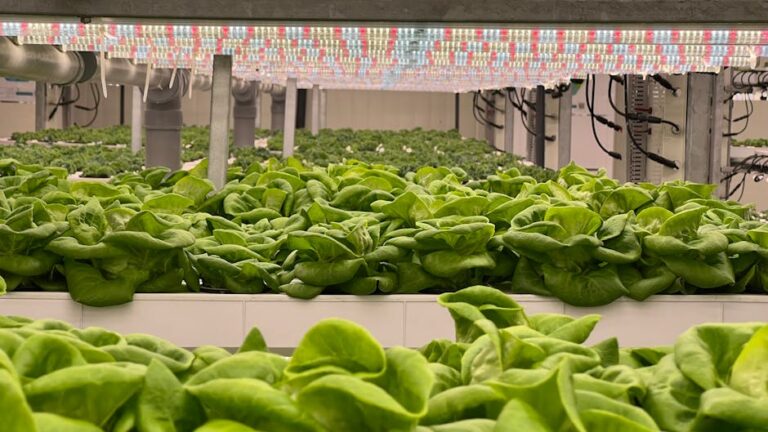
AI is playing a critical role in enhancing African agricultural productivity, transforming how farmers grow, monitor, and harvest their crops. In a continent where agriculture employs around 60% of the workforce and contributes over 20% of GDP, boosting productivity is essential for economic stability and food security. From analyzing soil data to predicting weather patterns, AI is empowering farmers with valuable insights to increase crop yields, minimize risks, and optimize resources.
Transforming Farming Decisions with Data-Driven Insights
In agriculture, data is gold. Yet, historically, African farmers have had limited access to it. AI is changing this by analyzing vast amounts of data to guide farmers in making smarter choices. With AI-driven platforms like IBM’s AgroPad, farmers can now perform on-the-spot soil testing to analyze pH levels and nutrient content, helping them determine the most suitable crops and optimal fertilization strategies.
Satellite-based AI tools are providing insights on crop health, soil moisture, and field conditions. For example, startups like Aerobotics in South Africa are using AI-powered drones to gather high-resolution data on farms. These drones fly over fields, capturing images that AI software then analyzes for signs of pest damage or nutrient deficiencies. Farmers can respond quickly, often preventing minor issues from turning into costly problems.
Weather Prediction and Climate Resilience
Unpredictable weather patterns are a major challenge for farmers in Africa. AI is helping to address this through advanced weather prediction models that enable farmers to plan their planting and harvesting seasons more accurately. For instance, iShamba, an AI-driven platform in Kenya, sends weather alerts and advice directly to farmers’ phones, enabling them to prepare for storms, droughts, or unexpected temperature changes.
AI is supporting climate resilience by helping farmers select crop varieties better suited to changing conditions. Startups like Wefarm, which connects farmers across Africa via SMS, uses AI to provide tailored farming tips based on weather predictions and local climate trends. This access to personalized guidance has proven invaluable in regions where climate change has made traditional farming practices less reliable.
Optimizing Resources and Reducing Waste
Efficient resource management is vital for productivity, especially in regions facing water scarcity or limited access to fertilizers. AI is making a big difference here by guiding farmers in efficient water usage, pest control, and nutrient application. Platforms like Hello Tractor, often dubbed “the Uber for tractors,” allow farmers to rent machinery only when needed, reducing equipment costs. The app uses AI to analyze field conditions and suggest optimal planting times and techniques, ensuring that resources are used effectively.
- Water Management: AI-driven irrigation systems adjust water levels based on soil moisture, reducing waste.
- Pest Control: Smart pest detection tools help farmers target specific areas, minimizing pesticide use.
- Fertilizer Application: AI helps determine the exact amount of fertilizer needed, enhancing soil health and reducing costs.
Real-World Impact of AI in African Agriculture
The impact of AI on African agriculture is not hypothetical, it’s already happening. Consider the case of Zenvus, a Nigerian startup providing smart sensors to monitor soil quality, crop health, and weather. Zenvus has helped farmers in Nigeria boost yields by up to 30% by making data-driven decisions. By tracking crop health with AI-powered sensors, Zenvus alerts farmers to potential issues early, allowing them to take corrective action in time to save their crops.
Another inspiring example is FarmDrive, a Kenyan fintech that uses AI to analyze data and create credit scores for smallholder farmers. Traditional banks are often reluctant to lend to farmers due to perceived risks, but FarmDrive’s AI-based credit assessments have opened up new financing options, enabling farmers to invest in better seeds, equipment, and fertilizers. This, in turn, drives productivity and helps stabilize farm incomes.
The Future of AI in African Agriculture
The role of AI in enhancing agricultural productivity is still in its early stages, but the potential is vast. As AI technology continues to advance, we can expect even more personalized and powerful tools for African farmers. Predictive models could become even more localized, providing hyper-specific weather forecasts down to the village level. Additionally, AI could play a role in improving supply chain efficiency, helping to connect farmers directly with markets to reduce food waste and increase profits.
Challenges remain, of course. Limited internet access and low digital literacy in some rural areas can make implementing AI-based solutions difficult. However, as mobile technology spreads and digital literacy programs expand, these barriers are gradually being overcome. With continued investment in infrastructure and training, AI will likely become a standard tool in African farming.
Driving Agricultural Productivity in Africa through AI
AI is undeniably a powerful tool for enhancing agricultural productivity in Africa. By providing data-driven insights, improving climate resilience, optimizing resource use, and enabling innovative solutions, AI is helping African farmers unlock new levels of efficiency and sustainability. From the fields of Kenya to the farms of Nigeria, AI is empowering farmers to grow more and waste less.
Discover more from Amebo Media
Subscribe now to keep reading and get access to the full archive.




